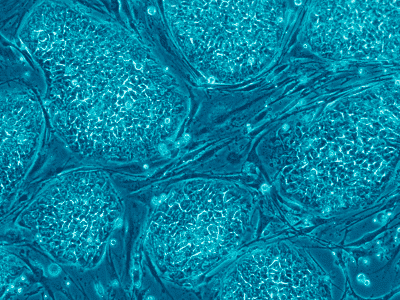
 It’s a stem cell rejuvenation.
It’s a stem cell rejuvenation.
In a result sure to gain interest from the anti-aging industry, researchers from Lund University in Sweden have found that old blood stem cells can be reprogrammed to produce new, rejuvenated blood stem cells.
The researchers believe their work could help in combating certain health ailments connected to aging blood stem cells such as anemia, lowered immunity and forms of blood cancer like leukaemia.
Well beyond fantasy tales of Count Dracula and vampires, the current fascination with the health and youth-invigorating properties of blood is based on a recent run of intriguing studies.
Starting a decade ago at UC Berkeley, researchers found that older mice who were surgically joined to share the blood of younger mice experienced tissue regeneration and cellular functioning over time, leading to general excitement that young blood might help reverse the aging process.
This past fall, private “health and vitality” company Alkahest brought forth its claims that injecting blood plasma from 18-year-old humans into older mice improved the mice’s cognition and rejuvenated their bodies, allowing them to perform much better at memory tests and gave them the ability to move and run around like much younger mice.
“It’s more or less what we would expect,” says Victoria Bolotina, at Boston University in Massachusetts, to the New Scientist. “The blood of young people must have something in it that’s important for keeping them young.”
Now, research has shown that it may be possible to turn back the aging clock on blood stem cells, effectively through a re-booting process that gives old blood stem cells the powers of younger, healthier ones.
Blood or haematopoietic stem cells can generate about one thousand billion new blood cells every day.
That’s why donations of blood stem cells — either from peripheral, circulating blood or from stem cells found in bone marrow — are so important.
According to Canadian Blood Services, there are over 80 diseases that can be treated with blood stem cell transplant and currently hundreds of Canadians waiting for a matching donor.
But the vitality of blood stem cells changes as we age, making them less capable over time of producing other blood cells and leading to problems such as lowered immunity and a greater risk of developing cancers of the blood.
“This type of age-related change can have major consequences as it can lead to an imbalance in stem cell production,” says David Bryder, of the Division of Molecular Hematology at Lund University and study co-author. “For example, a reduced production of immune cells or excessive production of other types of cells can be a precursor to leukaemia.”
The research team was able to genetically bar-code older blood stem cells in older mice and track them once they were reprogrammed to another form of stem cell known as iPS cells which have the ability to produce cells of all types, not just blood cells.
The researchers discovered that the reprogrammed cells had superior, rejuvenated abilities to produce blood cells comparable to those found in young mice.
“We found that there was no difference in blood-generating capacity when we compared the reprogrammed blood stem cells with healthy blood stem cells from a young mouse. This is, as far as we know, the first time someone has directly succeeded in proving that it is possible to recreate the function of young stem cells from a functionally old cellˮ, says Martin Wahlestedt of Lund University and study co-author.
The new research is published in the journal Nature Communications.
Leave a Reply
You must be logged in to post a comment.




 Share
Share Tweet
Tweet Share
Share




Comment